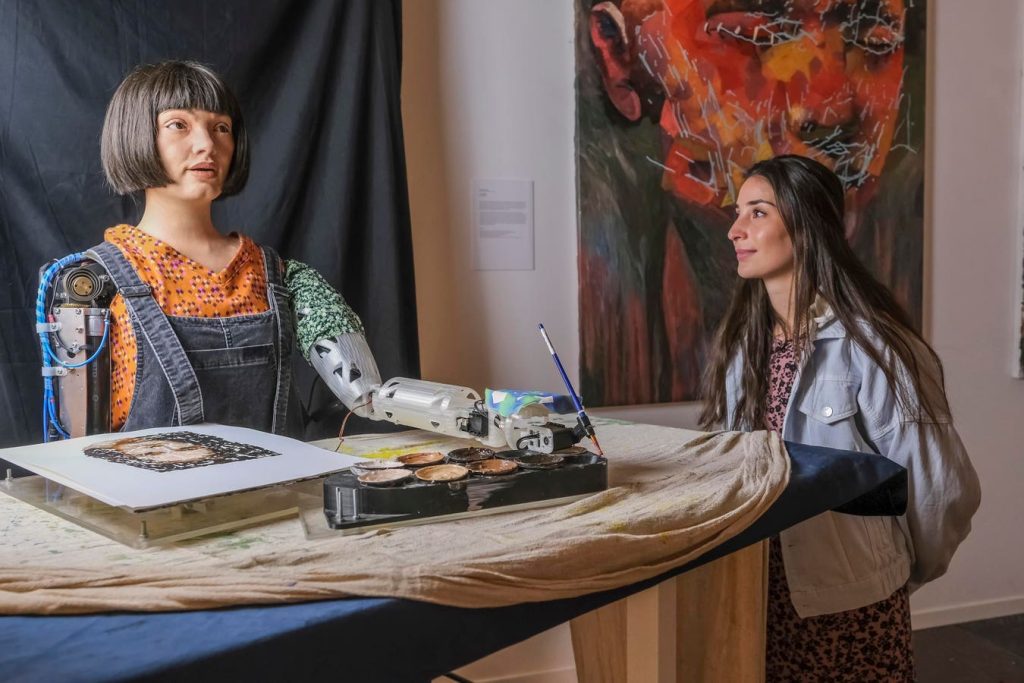The Week in Business Tech: Robots, Rollable Laptops, and the Rise of the AI Agent
The world of business technology is in constant flux, with new innovations and trends emerging at a rapid pace. This week’s headlines highlight the continued advancements in artificial intelligence, the evolution of personal computing, and the growing influence of AI in everyday work processes. These developments have significant implications for businesses of all sizes, shaping the future of work and the competitive landscape.
OpenAI’s renewed focus on robotics signals a significant shift in the company’s strategy. After pausing its robotics division in 2021, OpenAI is now actively pursuing the development of humanoid robots capable of performing a wide range of tasks, from warehouse automation to household chores. This move emphasizes the company’s commitment to exploring the potential of artificial general intelligence (AGI) in real-world scenarios. The implications for businesses are far-reaching, with the potential for OpenAI’s technology to power a new generation of automated systems across various industries, streamlining operations and increasing efficiency. This resurgence into robotics underscores the growing trend of AI integration into physical systems, moving beyond software and virtual applications. We can expect to see more seamless integration of AI across various hardware platforms in the years to come, blurring the lines between the digital and physical worlds.
This year’s Consumer Electronics Show (CES) showcased a range of innovative laptop designs, offering a glimpse into the future of personal computing. The standout trend is the emergence of flexible displays, with Lenovo’s rollable OLED screen capturing significant attention. This technology allows for dynamic screen size adjustments, offering users greater versatility and potentially reducing the need for multiple monitors. For businesses, this innovation presents an opportunity to enhance productivity and streamline workflows, offering employees more adaptable and space-saving devices. Other notable advancements include lighter and more powerful machines, catering to the growing demands of mobile professionals. While these cutting-edge devices may come with a premium price tag, they pave the way for wider adoption of these technologies in the future, driving down costs and making them accessible to a broader market.
The debate between ChatGPT Plus and Perplexity Pro continues, with users weighing the strengths and weaknesses of each platform. While ChatGPT excels in broader conversational AI capabilities and creative tasks, Perplexity Pro shines in research and information retrieval, leveraging its robust citation support and access to large datasets. The increasing reliance on specialized AI tools highlights the evolving nature of information access and knowledge management. For businesses, embracing a multi-platform approach can maximize the benefits of these tools, leveraging their specific strengths for different tasks. This trend suggests a future where AI tools are increasingly specialized, catering to specific needs and workflows, rather than a one-size-fits-all solution.
The future of search is rapidly evolving, with AI-powered search engines like ChatGPT and Perplexity transforming how we access information. Experts predict a shift towards more conversational search queries, moving away from traditional keyword-based searches. This change has profound implications for search engine optimization (SEO) strategies, requiring businesses to adapt their content and online presence to cater to these new search behaviors. The integration of ads into AI search engines is also anticipated, raising questions about how advertising will be seamlessly incorporated into conversational interfaces. The emergence of AI agents interacting autonomously on the web further complicates the search landscape, potentially altering the way information is disseminated and consumed. Businesses must stay agile and adapt to these evolving search trends to maintain visibility and reach their target audiences.
Microsoft Teams is integrating its AI assistant, Copilot, more deeply into meeting workflows, aiming to facilitate more engaging and productive conversations. The new feature will suggest follow-up questions and recommend team members to contribute to the discussion, potentially streamlining meeting flow and encouraging participation. However, concerns have been raised about the potential for these automated interventions to disrupt natural conversation dynamics and potentially prolong meetings unnecessarily. The success of this feature will depend on its ability to seamlessly integrate into existing meeting practices without feeling intrusive or disruptive. For businesses, the challenge will be to strike a balance between leveraging AI-powered assistance and maintaining human control over meeting dynamics.
These developments highlight the ongoing transformation of the business landscape, driven by advancements in artificial intelligence and related technologies. Businesses must remain vigilant and adaptable, embracing these new tools and strategies to stay competitive and thrive in this ever-evolving environment. The integration of AI into everyday workflows is becoming increasingly pervasive, offering the potential to enhance productivity and efficiency, while also presenting new challenges and considerations for businesses to navigate. From robotics to search engines to meeting management, AI is reshaping the way businesses operate and interact with the world. The next few years will be crucial in determining how these technologies are adopted and integrated into various industries, shaping the future of work and the competitive landscape.


